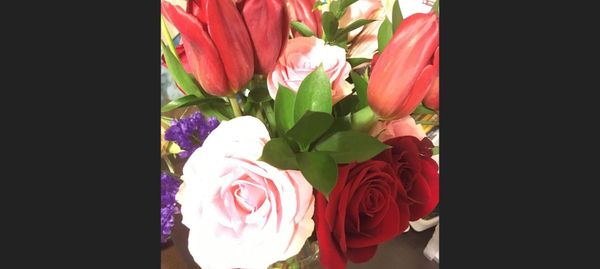I was scrolling through the daily Cosmopolitan Snapchat story on my phone a few days ago when something caught my eye. It was an article titled "12 Things Only Women Who Are Trying to Grow Their Hair Out Understand." Number one on the list read:
1. When you try to put your hair into a ponytail and just end up feeling like a sad ninja. I wouldn't be surprised if there were multiple people in this world who were on antidepressants almost specifically because of that little hair stump on the back of their head. It's a sad time.
I had to re-read the text, because I couldn't believe that a source as well-known as Cosmo would shamelessly mock depression for the sake of a joke about growing your hair out. However, the more that I thought about it, the more I realized that this sort of thing happens all the time. Mental Illness has become a colloquial in it's use to describe everyday feelings, but at the same time, it is invalidating those who actually suffer from these disorders.
It took me years to admit to someone that I have anxiety. I would practice with my counselor every week, "I'm Shelbi, and I have anxiety." I sounded like a member of anxiety anonymous for goodness sake. Even when I got to the point where I wasn't embarrassingly ashamed of admitting I was diagnosed with a mental illness, it still scared me. I had accepted that part of who I was, and that I couldn't change it. I wasn't scared of how I viewed my disorder anymore. I was scared of the invalidation I knew I would receive when I told others.
Phrases such as "That class was so boring, I wanted to kill myself," "I'm so OCD; my bedroom always needs to be clean" or "I'm depressed because I can't put my hair in a ponytail yet," are so flippantly used that most people don't think anything of them. Those of us that have a diagnosed illness or know someone who is diagnosed with one knows that they are so much more than a figure of speech. These phrases are so hurtful to someone who has struggled an internal battle fighting these issues their entire life. Those with medicine prescribed for these illness should be taken seriously, not joked about.
Anxiety is much more than being a little stressed about an upcoming exam the night before. It is panic attacks so strong you feel like you can't breathe at 2:00 p.m. on a Tuesday, and you honestly can't figure out why you're having it. OCD is more than feeling a bit nit-picky when you clean your room. It is having to turn of the lights exactly seven times and then checking the door lock 10, even though you've already gotten back into bed nine times before. Depression is more than being sad about a haircut. It is not being able to get out of bed because you can't stop re-living that one moment that has tormented you for two weeks straight. And the list goes on and on.
Mental illness is more than a slang way of saying you're upset. When you says that, you are inadvertently making 18.2 percent of the entire adult population in the U.S. feel like their illness is the brunt of a bad joke — not to mention those under 18 and everyone else suffering from a mental illness across the world. Mental illness is just as serious as any other health issue. In fact, suicide is the 10th leading cause of death in the US, and 90 percent of these are victims of a diagnosable mental illness.
My mental illness is more than a phrase. It shouldn't be trivialized by those who don't understand the extent of my struggle nor should anyone else's. I'm sick of them being the end of a shabby joke in an article begging for views. Our illness is valid, just as much as a physical injury is — and it should be treated as such.





















